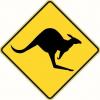To be a little bit more exact: Yes, increased hardness increases the abrasion resistance of a steel, as long as we talk about the same composition of the steel! Adding a lot of chromium to a steel increases the abrasion resistance, without neccessarily increasing the hardness.
Why do we harden tool steel:
- To make the steel more resistant against deformation. You don't want the edge of a chisel to bent over on a hard wood.
- To increase the abrasion resistance, especially usefull for plane irons for example.
Higher hardness usually leads to less toughness: The edge chips out more easilly. How the Japanese smiths manage very high hardness combined with still very reasonable touchness is their secret. Something to do with their choice of steel, the heat treatment resulting in a very fine grain structure, and probably the lamination construction plays a role too.
And 1095 is not really similar to Japanes white paper steel. The white paper steel is a very simple steel, but has a rather high carbon content in the range of 1.3%. 1095 is also a simple steel but it has a lower carbon content around 1% and it has about 0.3% manganese to help against the bad influence of phosphorus or sulphur contamination (not quite sure now which one...) and it helps a bit with heat treating.




 Reply With Quote
Reply With Quote



 ....
....
